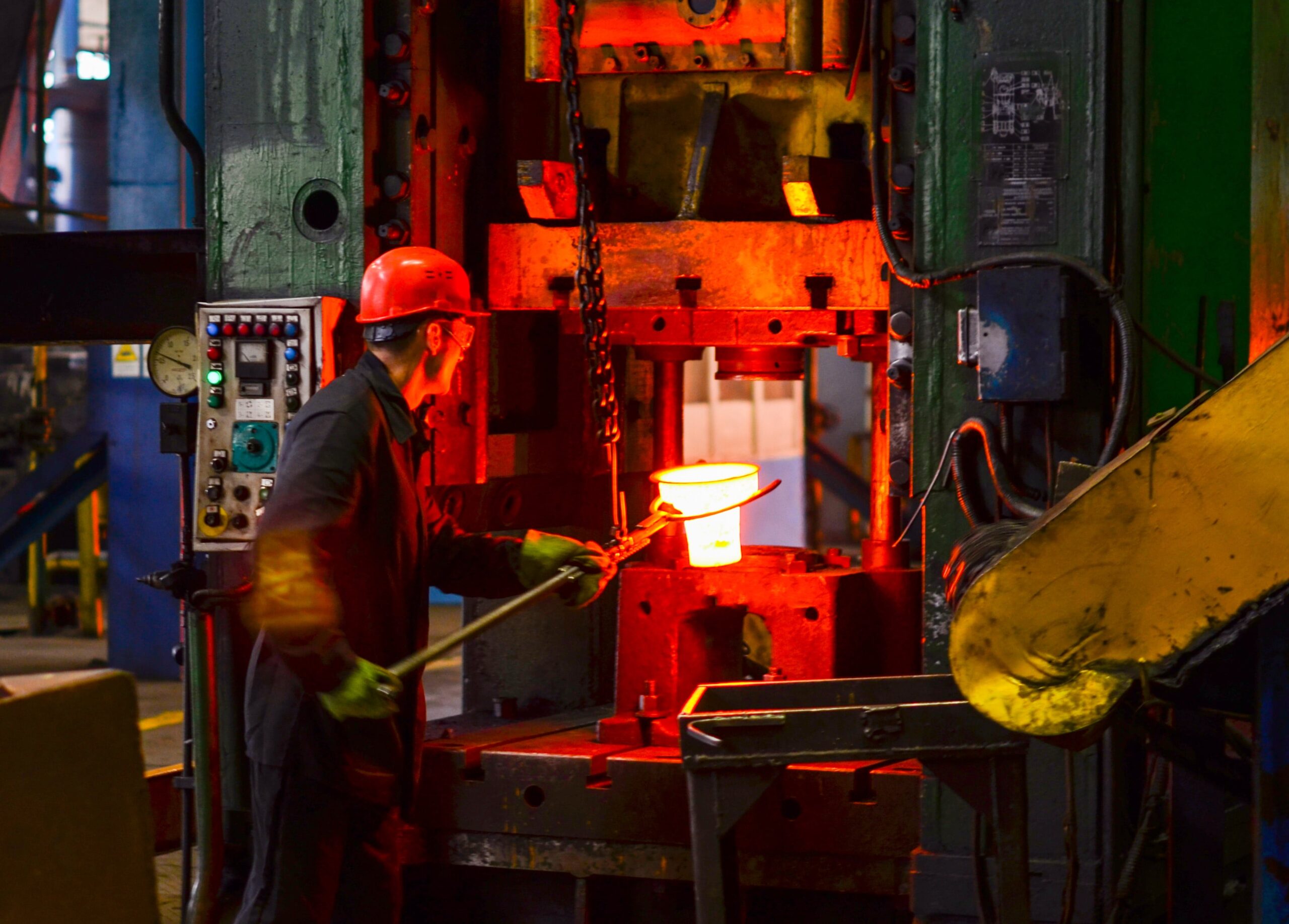What to Know About Titanium Forging
alloys
Curious about titanium forging and how the various titanium forging processes work? Businesses in many industries—including aerospace, marine shipbuilding, and military/defense—rely on forged titanium for various industrial and production-based uses.
This is primarily thanks to the high strength-to-density ratio of forged titanium alloys and the metal’s significant anti-corrosive properties. Both of these features result in a durable, versatile, and reliable material that can work well on land, in the air, and even in the sea, and contributes to the high demand for titanium alloys.
This demand has also created a burgeoning industry around titanium forging. And for businesses needing this impressive metal, it may help to know about the process that titanium undergoes before being put to industrial use.
Here’s a quick overview of some processes used for forging titanium alloys, including the impact of different forging temperatures on the end product.
The Titanium Forging Process
There are quite a few different processes for forging titanium alloys. The process that is ultimately used depends on the metallurgical properties of the starting material, plus the specific structure the forger is looking to create. When looking for a titanium supplier, ensure that the company you are interested in working with can forge titanium to the specifications you need.
Some of the different processes used for titanium alloy forging include:
- Open Die Forging – Blank titanium material is deformed and pressed into shape in the cavity between two molds. These molds do not completely encapsulate the material but instead provide a narrow gap through which excess material can flow out. When in the cavity, the titanium is repeatedly stamped until the desired shape is achieved.
- Closed Die Forging – Also known as impression die forging, this method uses compression under high pressure to shape a heated titanium blank. The blank is covered either in full or in part by the dies, which move toward each other from top to bottom to achieve the required form.
- Free Forging – Small and/or simple orders may be accomplished with free forging, a titanium forging method that is performed between two flat dies without an inner cavity. It is a relatively inexpensive and flexible method, but due to high labor requirements, it’s not the most common way to forge large amounts of titanium metal.
- Isothermal Forging – A process by which the starting material and the die are heated to an equal and highly controlled temperature to achieve high deformation rates with minimal pressure.
Other types of titanium alloy forging, such as multi-direction die forging, extrusion die forging, partial die forging, and rolled ring forging rely on similarly unique alignments of heat, pressure, and die used to achieve desired shapes. It’s important that the proper process is used, and that the plasticity of the material and the necessary end result are both taken into account.
Effects of Titanium Forging Temperature
Can you forge titanium at any temperature? Technically, yes; however, the temperature used must be correct for the process and part.
Hot forging is more common than cold forging, though the latter can be cheaper and more environmentally friendly. Notably, lower temperatures (below 1650 degrees Fahrenheit) are only suitable for non-alloyed titanium, while higher temperatures are a requirement for alloyed titanium.
It’s not just the temperature of the titanium itself that is essential during forging. The dies’ temperature must also be controlled since excessive heat loss or variations in heat will lead to defective parts.
The importance of temperature in the titanium forging process is primarily related to the metal’s structural elements at various heat levels. By forging with the correct heat levels of starting material and dies, the forger can create a more robust and more reliable end product—one that is structurally suitable for the job at hand.
Shop Titanium Alloys for Your Business
Our Alloys International, Inc. team can work directly with your company to acquire the metals you need at the desired specifications. Learn more about us and our services, and discover our wide selection of titanium alloys.
Want to know more? Please contact us for more information or with additional questions, or for support sourcing the titanium parts that you require for your business.



